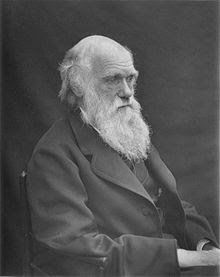Where there is no vision, the people perish’ (Proverbs 29: 18) might also be translated, ‘Where there is ignorance of God, the people run wild.’ Ignorance of God has characterized our generation. It can be seen today in many different ways: in the decline of the national church, in particular, but also in the decline of the other historic churches. Today there is half the number of clergy that there was in the last century, though the population has doubled. All around the country are closed, redundant churches and chapels, altars to an ‘unknown God’. They are like hulks stranded upon the shore as the sea of faith has receded. They testify to the estrangement and alienation of this generation from God, from the God of their fathers, from the God of the Bible. They are empty because people are no longer drawn to them in their search for God. The lights have gone out in their darkened windows as the light of religion has gone out in the homes of our communities.
Ignorance of God is not reflected merely in neglected church buildings; it is reflected also in the moral and social conditions of our society. God is increasingly absent from men’s thoughts. They are guided and motivated by material aims. The main areas of public discourse and debate are the economy, the distribution of the nation’s wealth and the state of the social and welfare services. The concerns of people are secular, ‘this worldly’. There is very little awareness of man’s spiritual state or destiny. A recent survey of attitudes among young people stated that ‘Those surveyed disliked rigid moral codes, Puritanism, authoritarianism, pessimism and family values… They seek excitement, risk and hedonism.’

Television
Television is a barometer. Religion figures less and less on it, except in those ways in which it is seen as a social phenomenon to be studied scientifically and often destructively. Rarely is it presented as something good to be embraced by all. In Britain, since Lord Reith, the BBC has first increasingly sought to occupy neutral ground, and to distance itself from any commitment to Christian faith or morals. Now it actively undermines them. There has been a 60% increase in complaints about swear-words and blasphemy, and a 25% increase in concerns about violence and crime on television and radio in the last year. This reflects the secularization of society and the way in which it has taken leave of God.
The area of morals is the most illuminating when we are considering the prevailing ignorance about God. The objective moral standards, which once obtained universally in society, have been abandoned in favour of relativism. Morals are determined by the culture and consensus of the community, or are regarded as mere individual preference or life style – like clothes. What is right in one situation is not necessarily right in another. The idea of absolute, transcendent values has largely disappeared. Man makes up his morality as he goes along, and it is never the same for any two communities or generations, or even individuals.
This is all part of what it means to be ignorant of God – but how did we get here?
The roots of all this lie very deep. They go back to the last century, when man’s mistaken view of science began to distort his understanding of the world and of himself and his relationship with God. Because he believed that he lived in a ‘billiard-ball universe’, in which everything was determined by natural laws, he began to banish God and the supernatural from the universe. Miracles were unthinkable, the Incarnation impossible; the Bible could not be an inspired revelation of divine truth. Man and material causation began to occupy the centre of the stage. Religion was explained by Marx as simply an effect of economic causes. A so-called scientific, naturalistic world-view soon led to naturalism in morals too.

Man’s nature, it was claimed by the pundits, had been repressed and constrained by an arbitrarily imposed moral code, deriving from the old idea of divine revelation. Man must be allowed to be himself; he must give free expression to his true nature. His true nature was found in his affinity with the animal creation, as Darwin asserted, and in his deep instinctive urges, which had been repressed, as Freud argued. Man must be liberated from unnatural constraints and limitations. He must be free to be himself and to accept fearlessly what he is.
Primitivism
This brings us to the beginning of this century. The movement that we see at work here can be described as ‘the revival of primitivism’, the gradual enthronement of the elemental forces of human nature. Dean Inge wrote in his journal, early in the 1920s, that ‘Futurism in art is better described as puerilism.’ He feared the upsurge of irrationalism which would be the beginning of a new ‘dark age’. This movement, which Inge saw as incipient in the art of the age, was also to find expression in the emergence of Nazism, the creed of blood, race and paganism. Reason and conscience were being dethroned in favour of the assertion of man’s primitive nature. Alongside this came also the sexual revolution which has so profoundly changed society. D.H. Lawrence was its prophet. Man was to obey his feelings, which were a truer guide and justification enough: ‘whatever is natural is right’. That creed has fashioned, consciously or unconsciously, modern thought and behaviour.
The Second World War was an attempt to roll back these forces which threatened to overwhelm the old Christian civilization on the political front, but culturally they have remained unchecked. The war was an interlude. Since then, the movement has gathered pace and momentum. The call has been for ever greater freedom from constraints. Modern methods of contraception have facilitated this in the realm of sexual relations, leading to the break up of stable marital relationships and family life. ‘Rock ‘n Roll’ has instilled the same message, in a subliminal way, in the Iyrics of ‘pop’ songs. The ‘pop culture’, with its drug subculture, has brutalized and warped the understanding and outlook of at least two generations and accelerated the trend towards unreason and ignorance.

The catalogue could be extended, but it may be summed up in an illustration which is found in Dr D.M. Lloyd-Jones’ book Truth unchanged, unchanging, in which he deals with this phenomenon of man setting aside reason and conscience, and allowing free rein to his animal nature. He likens it to a horse and rider. The horse and rider are safe as long as the rider is in control and holds the bridle. I remember talking to a man who had had a very unnerving experience of riding a horse when it bolted. There was nothing he could do but hang on to its neck until it tired and stopped. That is a picture of the condition man and society are in today. ‘Where there is ignorance of God, the people run wild.’
Where conscience and religion are rejected, the restraints have been removed by which man and society may be ordered and saved. Powerful, destructive forces are then set in motion and take their own course, carrying us wherever they will.
The church
But what of the part of the church in all this? How has it related to these developments? What restraint has it exercised in the name of conscience and religion? The answer is that it has been largely non-existent. The church has done very little at all to restrain. Its role has been largely to acquiesce in what has taken place, to match the revolution in society with a similar revolution in the church, in doctrine and morals. Thus the bit and bridle have been removed and the horse has had its head.
In the last century, there were many attempts made within the church to liberalize doctrine and to reconcile it with what was regarded as the unassailable ‘scientific’ view of the world and man. These attempts at accommodation of religion to the prevailing philosophy have gone on throughout this century too, but a watershed was reached in the early 1960s with the publication of the book Honest to God by Bishop John Robinson, the then Bishop of Woolwich. Until then, it is largely true to say that traditional ideas of doctrine had prevailed in the church, but the publication of that book, and the furore it caused, brought about a swing of the pendulum; it represented the transition to a new mode of thought and life in the church, in which progressive ideas would predominate.
Dr Robinson’s thesis was that ‘our image of God must go’. No longer was he the God ‘out there’, but the God ‘within’. God is to be thought of not as transcendent, but as ‘the ground of being’. He is to be found not in the heights, but in the depths. All this is symbolism, it is true, but its significance is of great importance. It revealed how the theologians’ thoughts coincided with, and set their seal upon, what was happening in the world. The whole supernaturalist framework of religion was being thrown out and God was being accommodated to the natural world.
In the decline of morals we encounter the same kind of reaction from the church. The moral thinking of the new theology followed that set by the world. Absolute moral standards had been rejected in favour of man’s instincts and feelings. The same was now to happen in the church. In the Sixties, along with Bishop Robinson’s ‘new theology’, we had the development of ‘situation ethics’, the substitution of subjective ‘insights’ and feelings for the revealed commandments of God. The authority for what we do is not without but within, it was argued. Man must not be guided by rules, but by ‘love’ and by feelings. They will determine in every situation what is right. So the moral thinking within the church has followed in the wake of the revolution that had taken place in the world. The church was being made conformable to the world and doing little more than sanctioning the permissiveness of the age.
Revolution
This shift to a new orientation and outlook in the church which took place in the Sixties, both in doctrine and morals, has progressed to what we are witnessing today: the outworking of that change in the life of the church. The increasing man centredness of worship, behaviour and doctrine is the consequence of the spiritual and moral revolution which took place then. There is no doubt that our society has, in the last thirty years, undergone a revolution as significant in its way as the Bolshevik revolution in Russia, or the cultural revolution in China. There has been a profound change of outlook upon society and the responsibility of the individual.
Now, at last, there seems to be a consciousness that things have gone pretty badly wrong, and some of our politicians have sought to address the problem. The Prime Minister, alarmed by the growing crime figures, announced his ‘Back to Basics’ initiative. Mr. Michael Portillo has spoken of what he terms ‘the new British disease: the self-destructive sickness of national cynicism’.
The Prime Minister’s initiative got off to a flourish of trumpets – a call to return to ‘traditional values’. But when confronted by a succession of moral misdemeanors by members of his party in Parliament, he found himself acutely embarrassed and tried to explain that he was not calling for a return to traditional moral values – (people’s morals are their private concern) but for a return to basics in education, such as teaching the three its’. It was not, in fact, a ‘moral crusade’ at all, though everybody at first thought it was, even many of Mr. Major’s colleagues. Since then we have not heard much, if anything at all, about ‘Back to Basics’.
The reason for the failure of the Government’s initiative is that there is a basic ambivalence in our society about a return to traditional values. Politicians and people alike want to be rid of the ill-effects of crime, which are the consequences of moral breakdown, but at the same time they are unwilling to forego their darling sins.
Moral reformation – the return to basics – whether in the individual or society needs the assistance of a power more than human to accomplish it.

Vision
This brings us back to the text with which I began: ‘Where there is no vision the people perish.’ ‘Where there is ignorance of God the people run riot.’ Commentators link those words with the experience of the Israelites in the wilderness, when Moses had ascended Mount Sinai to meet with the Lord and receive from him the Ten Commandments. While he was on the mountain, the people prevailed on Aaron to make a calf of gold, and they fell down and worshipped it. Then, following the practices of the heathen, they feasted and made themselves naked and ran wild in immoral excess. All this happened in the absence of Moses, and in the absence of the revelation of God’s word and truth.
Man’s nature is depraved and fallen. Left to himself, he will do wickedly. He needs the revelation of God and the power of true religion to restrain him and deliver him from himself. This is where contemporary thought, which has no reference to God, has gone wrong. It believes that man left to himself will be good and do right. Modern educational theory has been based upon that. The child must not be taught, but left alone to discover. Dr Rhodes Boyson has said, ‘Children in such schools and classes were liberated to arrogant, self-destructive ignorance, with little or no pattern of work, reaming or self-control… It was estrange denial of the doctrine of “original sin” by a naive belief in the purity and goodness of the child who was deemed to need no training in consideration for others and for society as a whole, nor in respect for learning itself.’
Is it any surprise that we are in the mess we are, with such theories as this? Man needs the revelation of God’s Word and truth to curb and restrain, and to regenerate his fallen and sinful nature.
Conclusion
So the conclusion to which I come is this: there can be no real return to ‘basics’, no moral regeneration of society, unless there is a willingness to accept the revelation of God’s truth in the Scriptures; unless men are prepared to abandon the humanistic and secularist assumptions of the last hundred years, and accept the truth that God has given us in his Word. The old humanistic nostrums have failed, and more of the same will not do. You cannot bring a corpse to life by chafing and rubbing it.
The moral condition of our society is beyond the reach of well-meaning but spiritually ignorant politicians and do-gooders. Our great need is scriptural truth; new spiritual light and life and power, and that only the gospel of Christ can supply. There must be a 180 degree turn in our society. There must be what the Bible calls metanoia, repentance, literally ‘change of mind’. The old humanistic and secular assumptions must be abandoned and the Bible’s teaching put in its place. And unless that is done, there is no hope. ‘Except ye repent, ye shall all likewise perish.’
The last great moral reformation in this country bears this out. The beginning of the eighteenth century was a time of great irreligion and immorality, not exactly parallel, but bearing some similarities to the present time. A remnant mourned over the godlessness and brutishness of the nation. But a degree of moral seriousness was restored, not by well-meaning individuals seeking to pull the nation up by its own bootstraps, but by the accession of spiritual and moral power through the revival of true religion. The whole tone of life in the country was changed by the end of the eighteenth century.

It is perhaps not altogether a bad thing that John Major’s little essay in ‘Back to Basics’ has failed. Let the nation learn that it cannot do this thing, that it cannot, whenever it chooses, and to suit its own convenience (because the consequences of crime are disagreeable and expensive), decide that it would like to have a little more morality. Let it learn that it is powerless in this matter. Let it learn to humble itself before God, to mourn and weep over its sins and to call upon him for mercy, and then we might see a very different result. That surely is the message, the prophetic message, that the spiritual leaders should be giving to our statesmen and indeed everyone. Righteousness must be soughs for its own sake, not just because we would all be better off if it prevailed. But it is indeed true: ‘Righteousness exalteth a nation, but sin is a reproach to any people.’
‘Where there is no vision, the people perish.’ And so, in a sense, the remedy is as simple as it is obvious – that ‘vision’, that ‘revelation of truth’, in a word, the Bible, must be reinstated, put in place of the false religion, false philosophy and ‘science falsely so called’ which have perverted and deceived our age and generation. That really is what ‘back to basics’ is all about.









